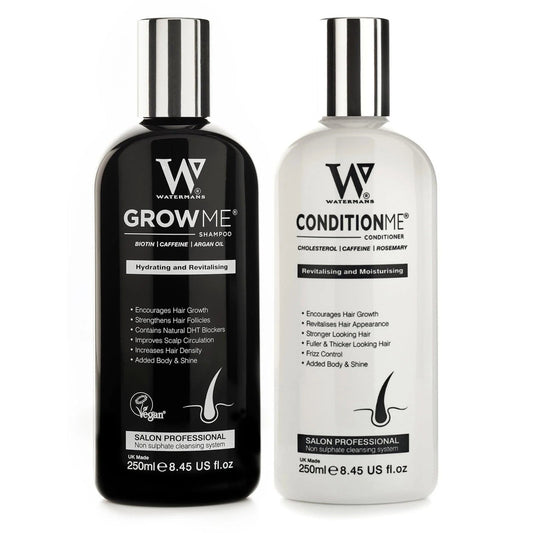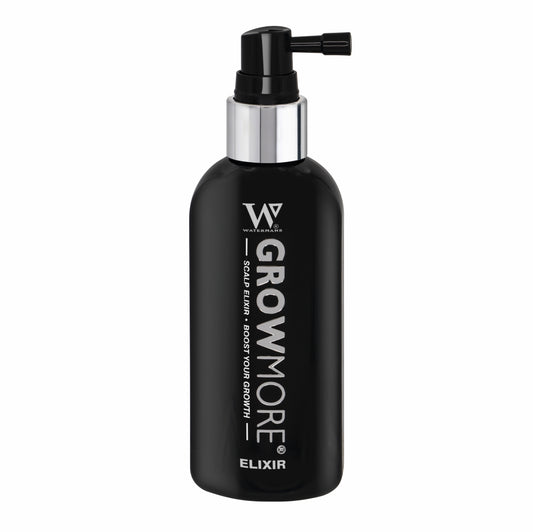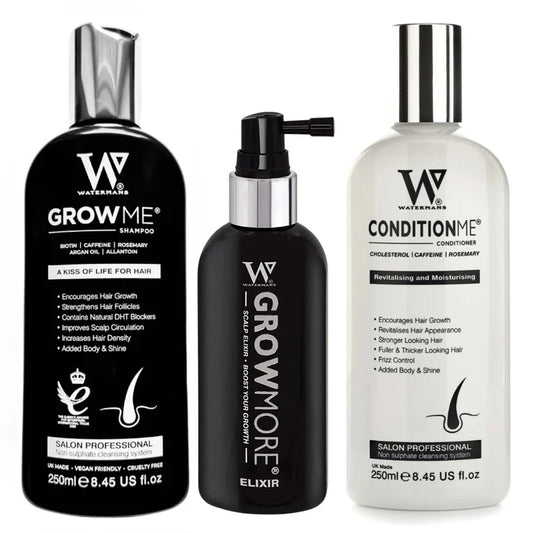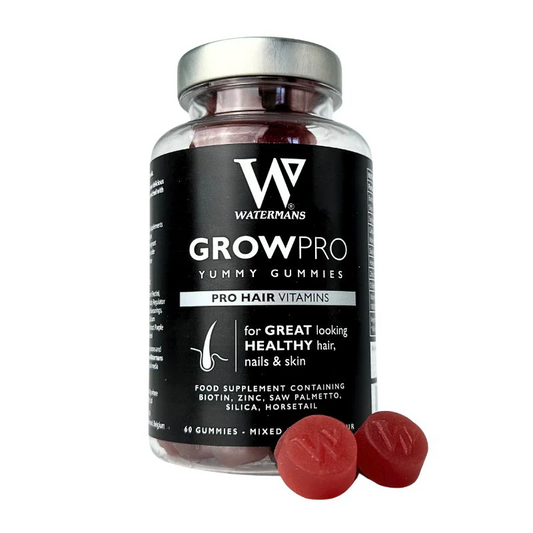Understanding Inflammatory Scalp Conditions: Causes, Symptoms, and Effective Treatments
Share
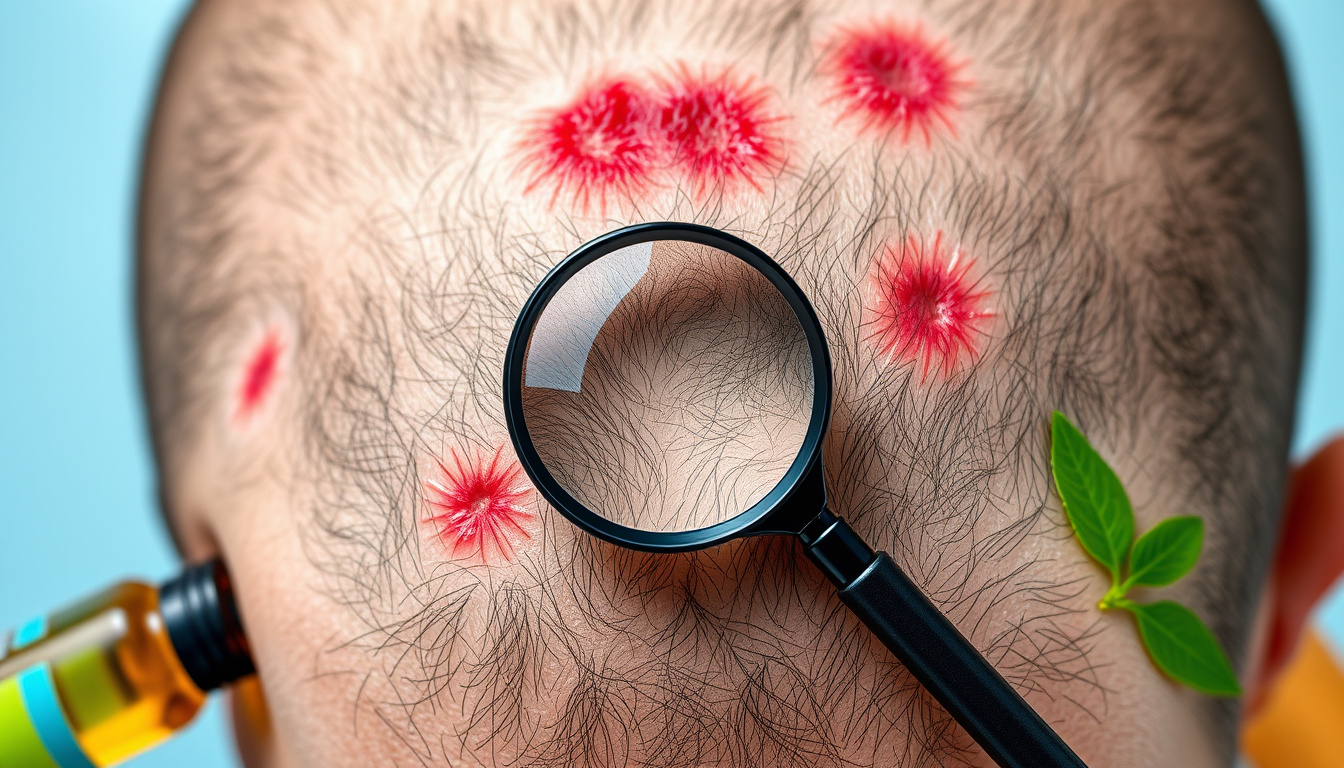
Inflammatory scalp conditions can significantly impact your quality of life. They can cause discomfort, embarrassment, and even lead to hair loss. Fortunately, there are effective treatments available, including natural solutions like Watermans Grow Me Shampoo that help promote hair growth while addressing scalp issues. This article will take you through everything you need to know about inflammatory scalp conditions, from causes to treatments.
What are Inflammatory Scalp Conditions?
Inflammatory scalp conditions refer to a collection of skin issues affecting the scalp, often characterized by redness, irritation, itching, and flaking. These conditions can affect people of all ages, and they can be temporary or chronic. Some common types include:
-
Seborrheic Dermatitis: This is a common inflammatory skin condition leading to red, greasy patches covered with yellowish scales. It can be found on the scalp, face, and other areas with high oil gland concentration.
-
Psoriasis: An autoimmune condition that leads to rapid skin cell production, triggering thick, silvery scales. Scalp psoriasis can be particularly troublesome, leading to itching and hair loss.
-
Folliculitis: This refers to the inflammation of hair follicles, often resulting from bacterial or fungal infections. It can cause painful red bumps on the scalp.
Understanding the underlying causes of these conditions can help you take better care of your scalp and hair.
Causes of Inflammatory Scalp Conditions
1. Genetics
Many inflammatory scalp conditions tend to run in families. If your parents or relatives have had issues with their scalp, it may increase your chances of developing similar problems.
2. Hormonal Changes
Hormonal fluctuations, particularly during puberty, pregnancy, or menopause, can trigger inflammatory scalp conditions. Androgens, the male hormones that are present in both men and women, can increase oil production, leading to issues like seborrheic dermatitis.
3. Stress
Stress is known to lead to a weaker immune system, which may aggravate existing scalp conditions or trigger new ones. Finding effective stress management techniques can be beneficial for maintaining scalp health.
4. Lifestyle Factors
Poor dietary choices, inadequate hydration, and lack of sleep can contribute to inflammation on your scalp. Maintaining a balanced diet rich in vitamins and minerals is vital for overall skin health.
5. Environmental Triggers
Allergens and irritants such as pollution, harsh weather, styling products, and chemicals found in hair-care products can lead to inflammation. It’s essential to be mindful of the products used on your scalp and choose natural solutions when possible.
Symptoms of Inflammatory Scalp Conditions
Recognizing the symptoms of inflammatory scalp conditions is crucial for timely treatment. Here are some common signs to watch for:
-
Redness or Swelling: Affected areas may appear red, swollen, or inflamed.
-
Itching or Burning Sensation: This can range from mild to severe.
-
Scaling or Flaking: You may notice dry patches on your scalp that flake off.
-
Hair Thinning or Loss: In severe cases, inflammation may lead to hair loss.
-
Painful Bumps: Some conditions can cause painful sores or bumps on the scalp.
If you notice any of these symptoms, especially if they persist, seek advice from a dermatologist for appropriate evaluation and treatment options.
Effective Treatments for Inflammatory Scalp Conditions
When it comes to treating inflammatory scalp conditions, a multi-pronged approach often works best. Below are some highly effective treatments:
1. Medicated Shampoos
Over-the-counter and prescription-strength shampoos containing ingredients such as ketoconazole, zinc pyrithione, or salicylic acid can help manage inflammation and control flaking. Using Watermans Grow Me Shampoo can also promote general scalp health while combating hair loss.
2. Topical Treatments
Corticosteroids or other anti-inflammatory creams can relieve symptoms of scalp psoriasis and seborrheic dermatitis. These formulas are designed to reduce inflammation and ease itching.
3. Lifestyle Changes
A healthy diet rich in omega-3 fatty acids, antioxidants, and vitamins can help reduce inflammation. Incorporating hydration and managing stress through mindfulness practices can also help improve scalp health.
4. Alternative Therapies
Natural treatments such as tea tree oil, apple cider vinegar, or aloe vera may provide relief for some individuals. Always perform a patch test before applying new products to your scalp.
5. Professional Treatments
In some cases, your healthcare provider may recommend treatments such as phototherapy, corticosteroid injections, or prescription medications for more severe conditions.
Prevention of Inflammatory Scalp Conditions
-
Gentle Hair Care: Choose gentle, sulfate-free shampoos and avoid excessive heat styling to minimize scalp irritation.
-
Scalp Hygiene: Maintain proper hygiene by cleansing your scalp regularly to remove buildup and excess oils.
-
Stay Hydrated: Drink adequate water to keep your skin hydrated from within.
-
Limit Stress: Make time for relaxation and self-care activities to help manage stress levels.
Did You Know?
-
Flaky Scalp: Did you know that a flaky scalp doesn’t always mean dandruff? Conditions like psoriasis and seborrheic dermatitis can also cause flakiness.
-
Oil Production: Your scalp produces natural oils that can build up over time, creating a perfect environment for inflammation and irritation.
-
Psoriasis Prevalence: Research suggests that a significant number of people with psoriasis may experience it on their scalp, affecting their daily lives.
-
Seasonal Changes: Inflammatory scalp conditions can be exacerbated by seasonal changes, particularly in cold or dry weather.
-
Diet Impact: Certain foods can affect inflammation in the body. A diet rich in anti-inflammatory foods can support a healthier scalp.
FAQ
1. What causes seborrheic dermatitis?
- Seborrheic dermatitis can be caused by a combination of factors including yeast overgrowth, sensitivity to certain oils, and genetic predisposition.
2. Can stress make my scalp problems worse?
- Yes, stress can trigger or worsen existing scalp conditions by weakening the immune system.
3. Is it safe to use regular shampoo if I have an inflammatory scalp condition?
- It's best to use a medicated shampoo that addresses your specific condition, but always consult a dermatologist for personalized advice.
4. How often should I wash my hair if I have scalp issues?
- Washing frequency varies by individual, but gentle cleansing every 2-4 days can help manage conditions without overwashing.
5. Can diet really affect my scalp health?
- Absolutely! A diet rich in vitamins, minerals, and omega-3 fatty acids can promote better scalp health and reduce inflammation.
Inflammatory scalp conditions are common, and knowing how to manage and treat them can help improve your overall health and well-being. Whether you opt for medicated treatments or natural solutions, remember to prioritize your scalp health with products like Watermans Grow Me Shampoo.
